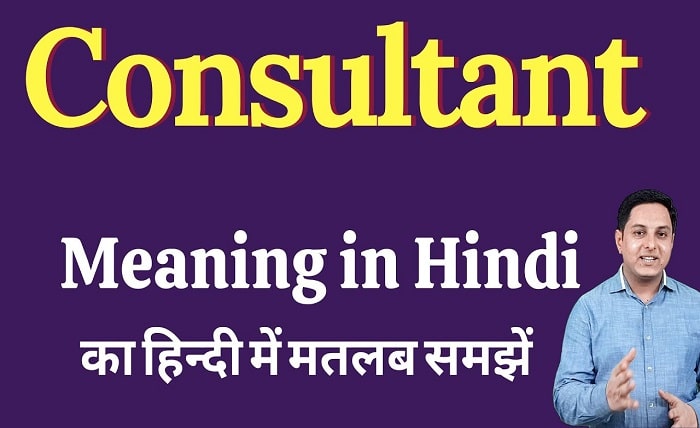Consultants in Hindi: Unlocking the Power of Professional Guidance

In today’s dynamic and competitive world, seeking professional guidance and expertise has become a crucial aspect of personal and professional growth. Consultants play a vital role in providing specialized knowledge and guidance to individuals, businesses, and organizations. In this article, we will explore the significance of consultants in Hindi, the benefits they offer, and how they can help unlock the full potential of individuals and businesses.
Understanding the Role of Consultants
What are Consultants?
Consultants are professionals who offer expert advice and guidance in a specific field or industry. They possess in-depth knowledge and experience that can help individuals and organizations overcome challenges, achieve goals, and improve overall performance. Consultants are typically hired on a project basis or for a specific duration to address particular needs.
The Importance of Consultants
Consultants play a crucial role in various aspects of personal and professional life. They provide valuable insights, strategic recommendations, and practical solutions based on their expertise. By leveraging their knowledge, consultants empower individuals and businesses to make informed decisions, streamline processes, enhance efficiency, and achieve sustainable growth.
The Advantages of Hiring Consultants
Expertise in Hindi
By engaging consultants who are fluent in Hindi, individuals and businesses can benefit from expert guidance tailored specifically to the Hindi-speaking audience. This ensures effective communication, cultural sensitivity, and a deeper understanding of local markets, which are essential for success in Hindi-speaking regions.
Cost-Effective Solutions
Hiring consultants can be a cost-effective approach compared to maintaining in-house experts or conducting extensive research. Consultants bring specialized skills and knowledge, enabling them to address specific challenges efficiently. This targeted approach saves time, reduces costs, and provides access to expertise without the need for long-term commitments.
Objective Perspective
One of the significant advantages of hiring consultants is their ability to provide an unbiased and objective perspective. They bring fresh insights, challenge existing practices, and identify areas for improvement. This outside perspective can be invaluable, especially when organizations require an unbiased assessment of their operations or need innovative ideas to overcome hurdles.
Access to Industry Insights
Consultants are constantly exposed to various industries and sectors, allowing them to stay updated with the latest trends, best practices, and market dynamics. This exposure enables them to provide clients with valuable industry insights, benchmarking data, and strategies that align with current market demands. By leveraging this knowledge, organizations can gain a competitive edge.
Types of Consultants in Hindi
Management Consultants
Management consultants offer expertise in improving overall organizational performance. They assist with strategic planning, process optimization, change management, and leadership development, ensuring businesses operate efficiently and achieve their objectives.
Financial Consultants
Financial consultants provide guidance on financial management, budgeting, investment strategies, and risk assessment. They help individuals and businesses make informed financial decisions, manage assets, and optimize financial performance.
HR Consultants
HR consultants specialize in human resources management. They assist with talent acquisition, employee engagement, training and development, performance management, and HR policies. HR consultants ensure organizations have effective HR strategies in place to attract, retain, and develop their workforce.
Marketing Consultants
Marketing consultants offer expertise in developing effective marketing strategies, brand positioning, market research, and customer segmentation. They assist businesses in reaching their target audience, increasing brand visibility, and driving revenue growth.
Technology Consultants
Technology consultants provide guidance on leveraging technology to improve business processes, enhance productivity, and drive innovation. They offer expertise in areas such as IT infrastructure, software implementation, cybersecurity, and digital transformation.
Legal Consultants
Legal consultants assist individuals and businesses in navigating complex legal matters. They provide advice on compliance, contracts, intellectual property, dispute resolution, and regulatory issues, ensuring legal compliance and minimizing legal risks.
The Process of Engaging Consultants
Identifying the Need
Before engaging a consultant, it is crucial to identify the specific needs or challenges that require expert assistance. Clearly defining the problem areas or goals helps in finding the right consultant with the relevant expertise.
Researching Potential Consultants
Research and gather information about potential consultants who specialize in the desired field. Look for their experience, qualifications, track record, and client testimonials to ensure they are a good fit for the specific requirements.
Evaluating Credentials and Experience
Evaluate the credentials and experience of shortlisted consultants. Look for relevant certifications, educational background, industry experience, and successful past engagements. This evaluation ensures the consultant has the necessary expertise to address the specific needs.
Engaging in Initial Consultation
Engage in an initial consultation with the selected consultant. This meeting helps in assessing their communication style, understanding their approach, and discussing project scope, timelines, and deliverables. It is also an opportunity to gauge rapport and determine if they are the right fit.
Setting Clear Expectations
Establish clear expectations regarding the consultant’s role, deliverables, timelines, and communication channels. Clarity ensures both parties are aligned and have a shared understanding of the project’s objectives.
Establishing a Collaborative Relationship
Maintain open and collaborative communication throughout the engagement. Foster a relationship built on trust, transparency, and mutual respect. This collaborative approach maximizes the effectiveness of the consultant’s guidance and ensures a successful outcome.
Maximizing the Benefits of Consultant Engagements
Effective Communication
Maintain regular and open communication with the consultant. Clearly articulate goals, challenges, and expectations. Provide feedback, ask questions, and address any concerns promptly. Effective communication fosters a strong partnership and ensures the consultant understands the evolving needs.
Active Participation and Collaboration
Actively participate in the consultant engagement. Collaborate with the consultant to co-create solutions, implement recommendations, and monitor progress. The involvement of stakeholders ensures a shared ownership and commitment to the success of the project.
Implementing Recommendations
Take proactive steps to implement the consultant’s recommendations. Leverage their expertise to make necessary changes, adopt new practices, and optimize processes. Implementing recommendations effectively translates the consultant’s guidance into tangible improvements.
Continuous Evaluation and Feedback
Regularly evaluate the progress and impact of the consultant’s work. Provide feedback on the effectiveness of the solutions implemented and share any challenges faced. Continuous evaluation and feedback enable the engagement to adapt and evolve based on the changing needs.



